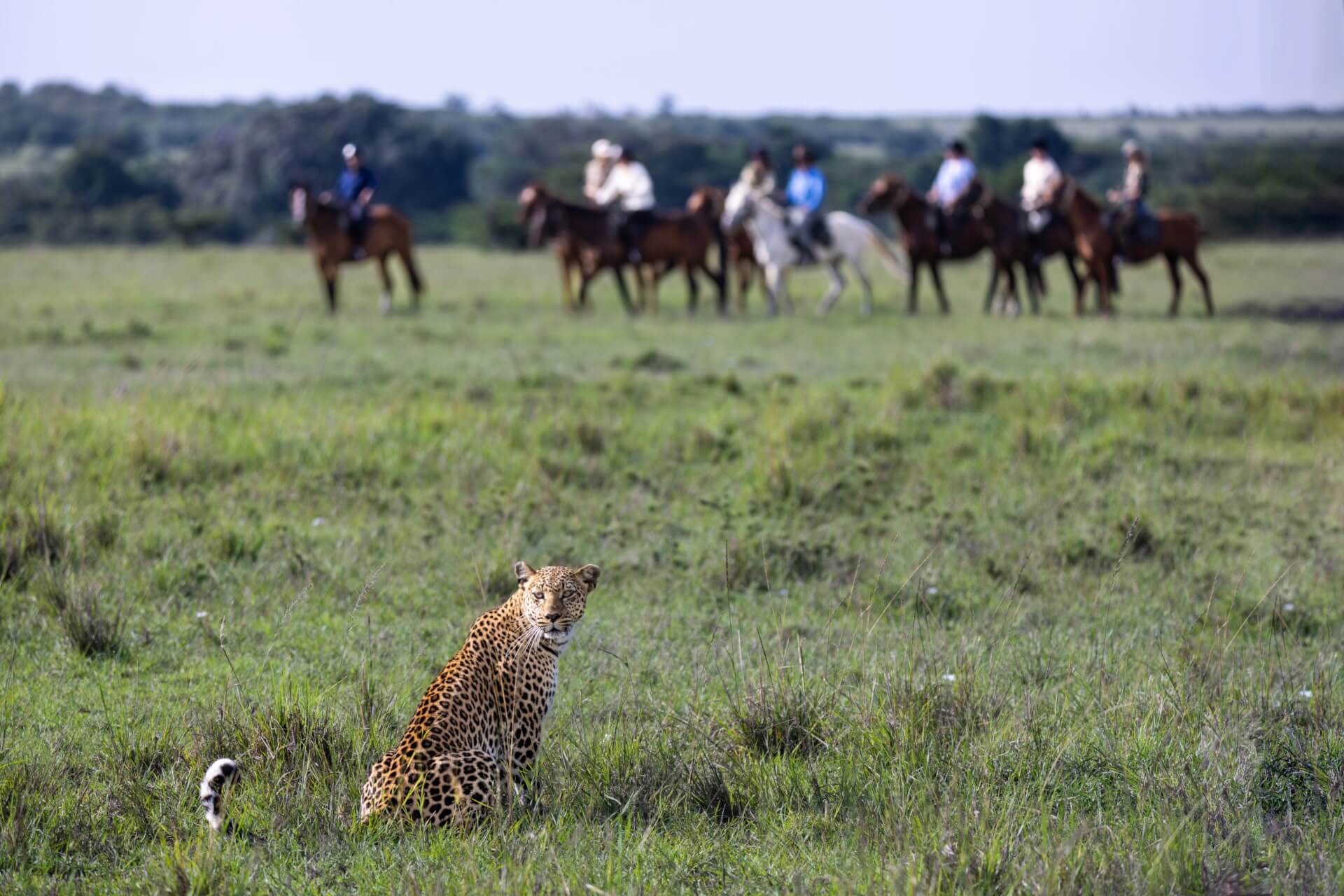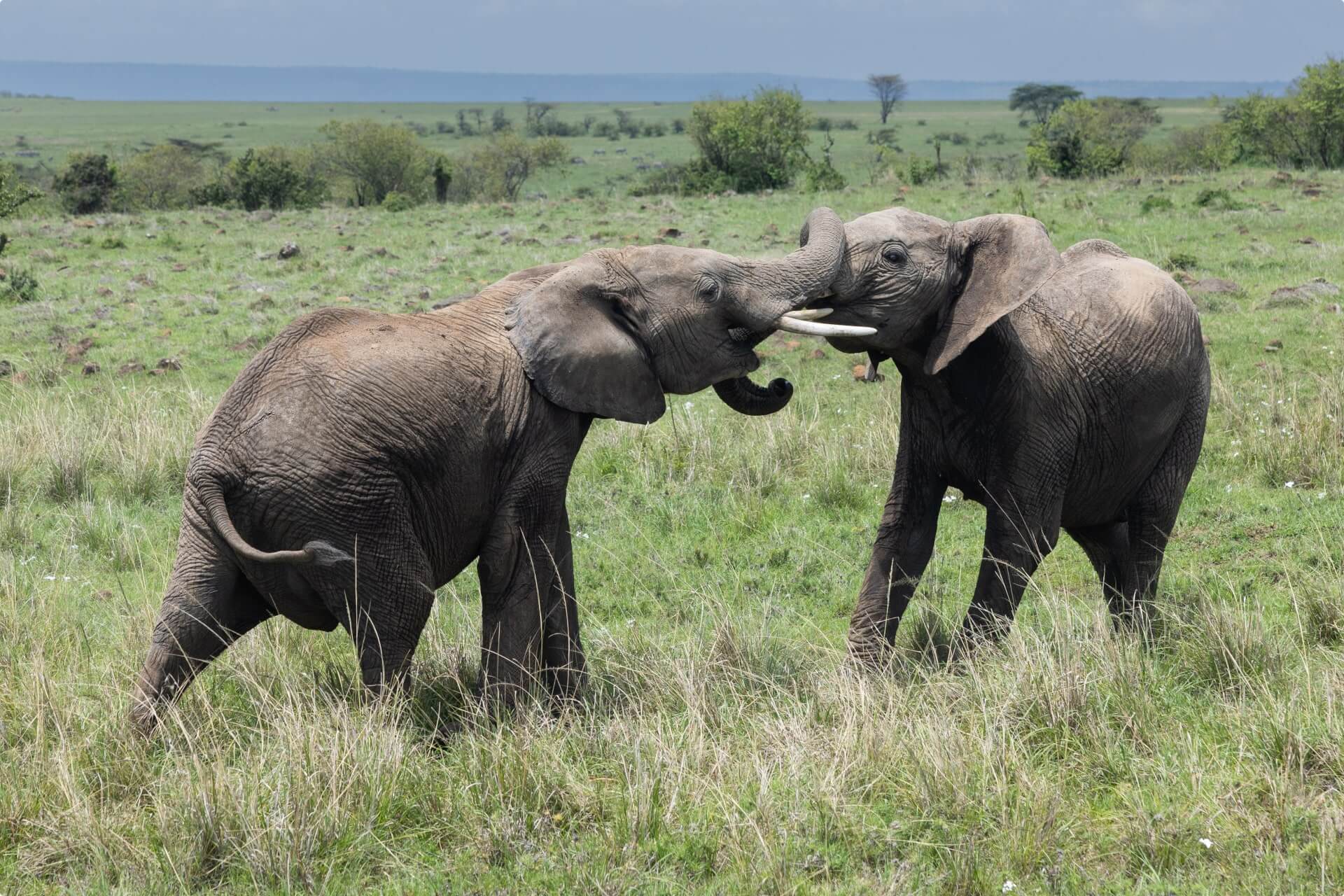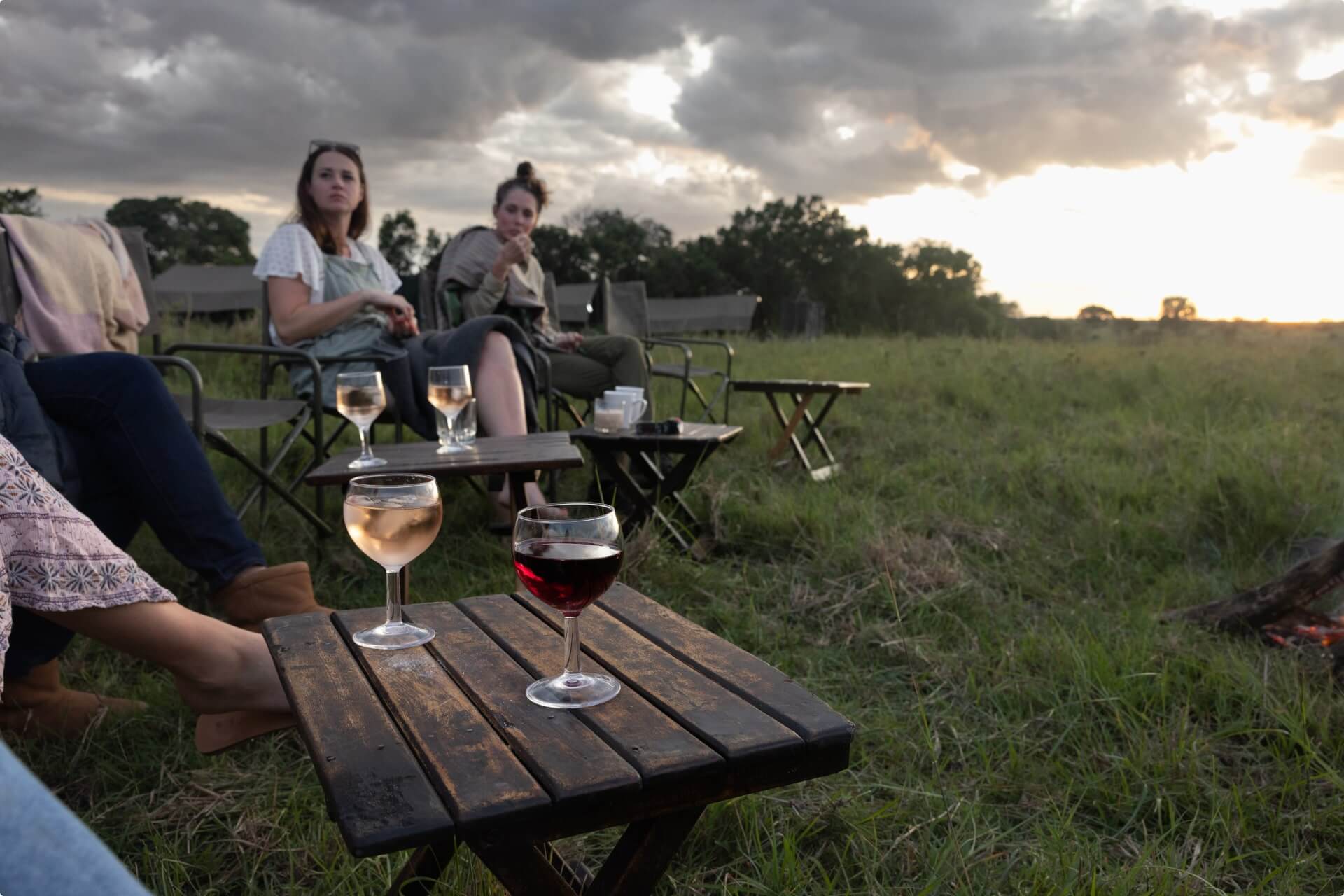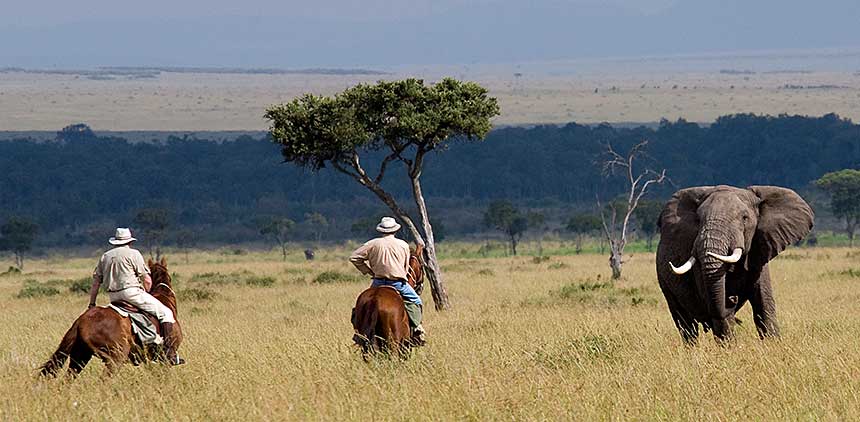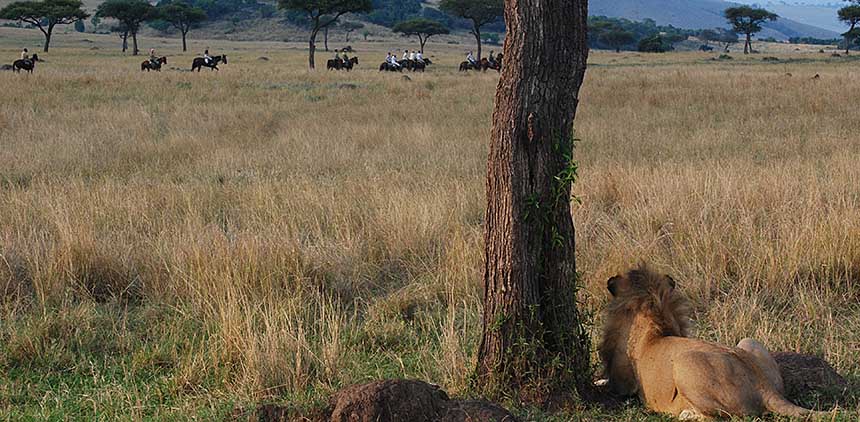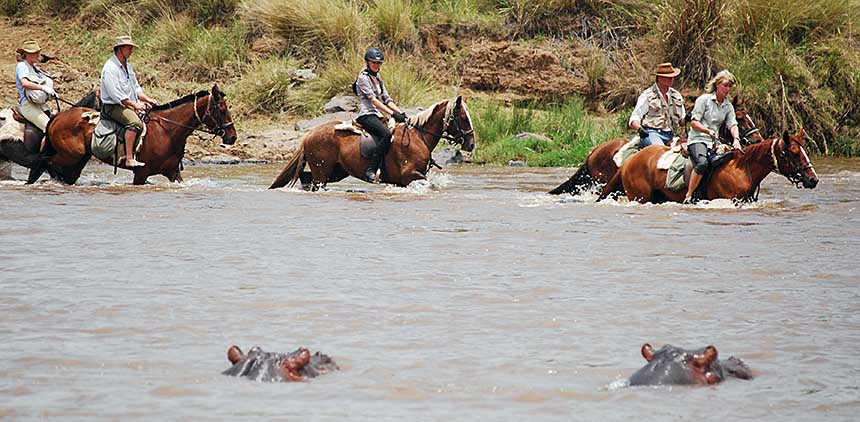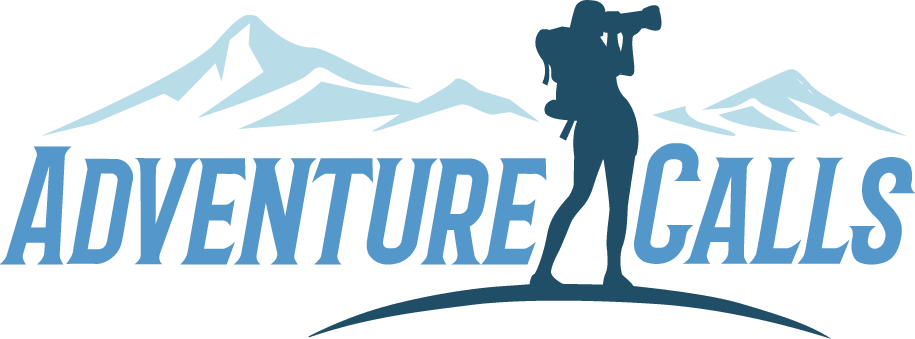Kenya Riding Safari
Frequently asked Questions
Why go with me?
I love sharing my sense of adventure with the world. As a one woman show, I take immense pride in my company, and do not want to turn it into a huge impersonal operation. I have lived and worked in east Africa for the past 15 years, and I feel like it is my second home. I partner with the best in the business, and take the time and effort to meet and form excellent working relationships with my teams on the ground. With amazing people and guides, I can provide guests with the best possible experience.
What does a typical day of riding look like?
There are two types of riding days:
stationary days and moving days.
Stationary days: We get up early, have tea or coffee, then head out for a few hours of riding. After a few hours in the saddle, we return to camp, eat breakfast, and then head out in the jeep for a game drive, trying to get closer to any animals we spotted in the morning. Following the game drive we will return for lunch and a siesta. In the evening, as the weather cools and the animals are more active, we will go out for another ride or game drive, which can turn into a sundowner and night drive.
Moving days: These are our longer days. We start around 8:30 and ride for about 4 hours. We stop for a picnic lunch, where the food and tables are set up and waiting for us. After lunch there will be blankets and pillows in the shade where we can relax. After a few more hours of riding, we will return to camp.
What are horses like?
The horses are mostly thoroughbred or thoroughbred crosses. They are quick, but not out of control. When the guides shift to a faster pace, the horses will follow. I am not an extremely confident rider, but I felt totally safe on my horse and definitely got more comfortable as the week went on. The horses know their jobs and love to be out on the savannah plains. Based on your riding ability, we will match you with the appropriate horse. There are the perfect partners that have done this trip so many times, and there are the young,er hotter horses that may fit you better.
What if I don’t want to ride or have a partner that does not ride?
There is always a jeep ready and waiting. If you are sore and feel like skipping a ride at any time, we will change it to a game drive. If you are tired on the moving day and want to sit the last leg of the journey, we can make sure we get you in the jeep. If you have a partner that does not ride, we can coordinate the rider and the jeep in order to meet us for breakfast, lunch and game drives. This is a trip geared towards riders, but it is also an incredible safari for the jeeps as well.
How good of a rider do I have to be?
You should be comfortable at all gates. There is a lot of walking the horses during the day, but when it’s flat enough, we will often be hand galloping across the plains. There will never be a time where you are out of control, but we do move at a fast pace when the terrain allows it. You will need to be able to steer at the hand gallop and navigate holes and uneven footing. Horses are sensitive, and if they spook, it’s important that you can stay calm and balanced. My horse was not particularly brave, and if he did a little spook, it was a small movement sideways.
What kind of shape do I need to be in?
This is an exciting adventure, and I think it’s hard to beat riding a horse on safari. When I went in 2022, I had not been riding much in the prior month, so I would not consider myself in appropriate riding shape. As a dressage rider in good riding shape, I would ride hard for about an hour a day. Trail riding is very different, and I was never as sore or as tired as I would be after an intense lesson. We had riders of all ages in our group – from age 37 to 74, but all with the adventure to ride.
What kind of tack can I expect?
We ride in English General Purpose Wintec saddles and leather saddles. Some Australian stock saddles are available on request. Seat savers are vailable. We mainly use snaffle bridles.
Can children go?
We will accept teenagers 14 years and older if they are competent riders and prepared to join in with other adults. Teenagers 14-17 years pay 75% of the adult rate on a set departure.
Is there a weight limit?
We have a strict maximum weight limit of 210 lbs/95kg. Our horses in Kenya are not very big. On booking, we will require details of your riding experience, plus your age, weight and height, so that we can match you to a suitable horse.
What are the accommodation like?
I would say authentic safari style. It feels like you are stepping back in time. We sleep in arm styler portable tents. There are comfortable cots with mattresses. I would not call this camping as far as comfort goes, but it is much nicer than sleeping on an air mattress. There are bucket showers where hot water is brought to you. They are short and refreshing. Toilets while riding in the bush and when you are at camp, are drop toilets. They have a seat to sit on, and are more comfortable than squatting in the bush.
Luggage Allowance?
Domestic flights have a maximum weight allowance of 15 kilos including hand luggage. On safari, a soft bag is preferable to a hard case.
Can I do Laundry?
While you are on safari, laundry will be washed by hand on non-moving days and dried in the sun. Ladies are asked to hand wash their own underwear.
What is the food like?
I found the food to be excellent. Breakfast is a choice of oatmeal, yogurt, fruit, bacon, eggs and toast. Lunch options include salads, sandwiches, cheeses, meats and fruit. Dinners are three course meals starting with a salad and appetizers, followed by a western style main course of steak, lamb, pasta or pork, and dessert. Most dietary restrictions can be accommodated. You will not go hungry.
Where do we ride?
Mara North Conservancy is a beautiful private wilderness area of more than 61,000 acres. It is a vital part of the Maasai Mara ecosystem as it forms the north-western zone, bordering the Maasai Mara National Reserve in the south of Kenya. Mara North Conservancy is a not-for-profit company established in January 2009. The conservancy is a partnership between 13 Tourism Partner members (7 camps, 3 lodges and 3 riding outfits) and over 800 Maasai Landowners. The aim is to create a best practice, world-class conservancy with long-term commitments to the environment, wildlife, and local communities. MNC strongly believes in low bed density tourism so as to guarantee an exclusive safari while minimizing the impact on the environment. Conservancy fees are collected by Tourism Partners and forwarded onto the conservancy to support the monthly Maasai Landowner’s lease payments and professional land management. Together, MNC and the Maasai community are implementing sound land management policies including, controlled grazing, holistic management practices, low volume and low impact tourism, and community land-use plans.
What kind of insurance do I need?
Insurance is compulsory. I and the teams on the ground insist that you travel with full travel and medical insurance for the duration of the holiday, including coverage of cancellation and curtailment, covid related cover, missed departure or delays, stolen, lost or damaged luggage, medical expenses, medical evacuation and repatriation, personal liability, extreme sports and activities (safari driving, camping, bush walking and horse riding). These are adventure safaris and Adventure Calls and Offbeat Safaris Ltd accepts no liability for accidents on safari – riders ride at their own risk.
Disclaimer: When you arrive on safari you will be given a waiver form to fill in and sign.
Amref Flying Doctors: We provide every guest 30 day membership to Amref Flying Doctors. This includes air evacuation from the Mara to Nairobi in the case of a medical emergency and an ambulance to a Nairobi hospital. Any further medical insurance is required from the guest.
You can also
shoot us an email and we will be happy to answer any questions you might have.
